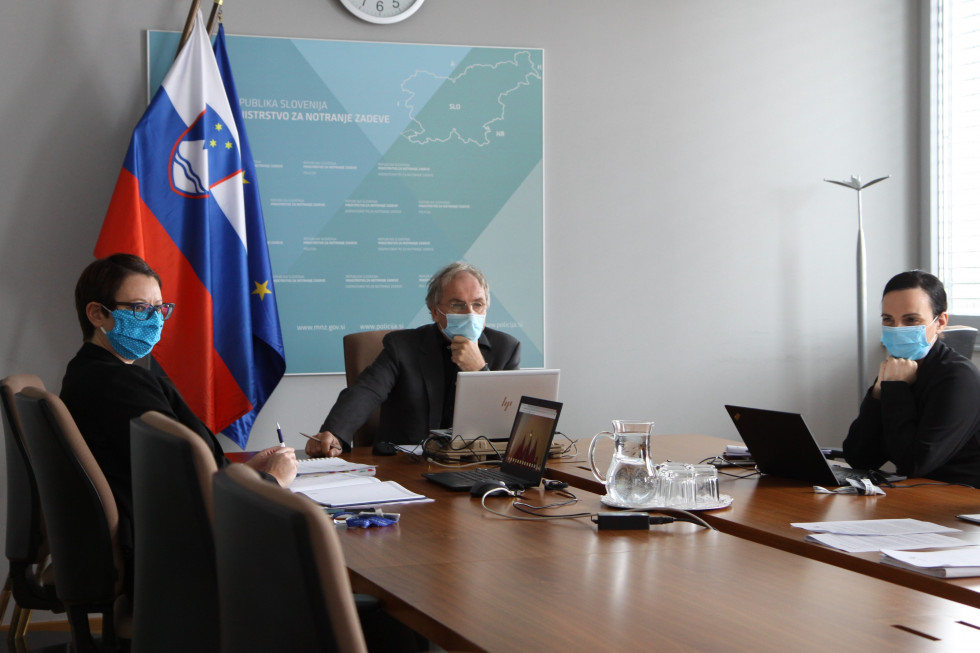Slovenia sees return, border procedures and a broader definition of solidarity as the key points of the Migration and Asylum Pact
The video conference was also attended by the ministers and representatives of interior ministries of Austria, the Czech Republic, Denmark, Estonia, Latvia, Lithuania, Slovakia and Hungary. Participants discussed the relationship between responsibility and solidarity, search and rescue operations, protection of the EU’s external borders, and the external dimension, including return and readmission.
Minister Hojs presented some preliminary positions of Slovenia. He stressed the importance of cooperation with third countries, in particular on return and readmission, saying that these countries should be encouraged to participate through financial assistance and other incentives, and sanctions should be applied in the event of non-cooperation.
Slovenia supports procedures at the EU’s external border, as these would distinguish between persons in need of protection and those who should be returned. The Minister said he advocated full support for the Member States at the external border, also through assistance by Frontex and the use of large information systems. He pointed out that migrants rescued in search and rescue operations should also be part of these border procedures. In Slovenia’s opinion, they should not be considered a special category and as such be included in immediate relocation, as this would represent a significant pull factor, advertising the use of the dangerous route across the Mediterranean Sea.
As for solidarity, the Minister said that its form and the manner of its implementation should be left to each Member State to decide. The migratory pressure on each Member State as well as its absorption capacity should also be taken into account. The concept of compulsory solidarity should only be used in crisis situations. According to the Minister, “solidarity must not only mean relocation – we should also identify some alternative measures to help Member States in crisis situations”.
The participants presented similar views on the topics discussed. Poland will prepare a document on common positions of the participating Member States by the December Home Affairs Council meeting.


